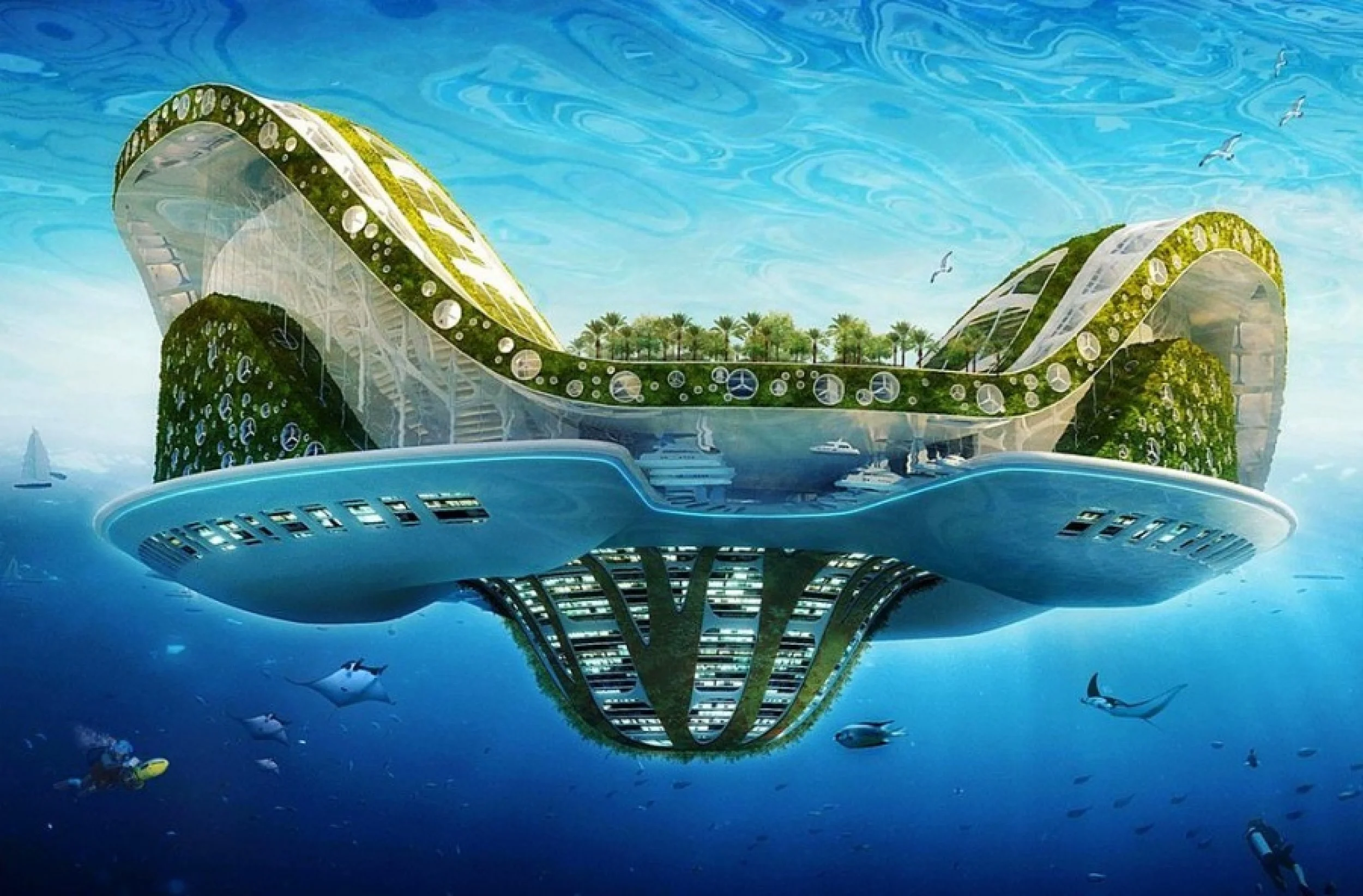The Future is Full of Floating Cities at Sea
/Worried about another Great Flood? Well, thanks to the floating cities of Singapore-based start-up, Blue Frontiers, you won't have to.
These cities are designed to float on water, so they won't sink like Atlantis or Lemuria. The French Polynesian government signed a deal with Blue Frontiers for them to build a $60-million floating village on the south side of Tahiti and everyone is very excited. Construction is planned to begin in 2020 and will be a working prototype for developing larger floating communities of the future. The main driving force behind this project is the non-profit San Francisco-based Seasteading Institute lead by Joe Quirk.
The floating city vision is to provide safe sustainable and affordable city-scale communities that can rise above the current social, economic, environmental, and political problems. Such models could be built alongside countries in safe-enough oceanic regions, so not in the Bermuda Triangle or Devil's Sea.
Proof of Concept
The first one will be in the safe geographic region of Tahiti with shallow waters just 100 feet deep and 3,000 feet from shore. Up to 300 people will work and live on 10-15 floating city blocks. Each unit measures about 7,500 square feet or about 90' x 80' and are connected with bridges.
“We’re going to have bungalows, we’re going to have apartments, we’re going to have research institutions, we’re going to have an underwater restaurant,” Quirk says. “It will be a tourist attraction in its own right, and a showcase for sustainable societies. We plan for these platforms to increase the density of sea life as animals and plants attach to it. You’ll go down into the basement and look through the glass walls and see the sea life… to really introduce people to how floating societies can be environmentally restorative.”
Watch Seasteading Institute's video to see 3D models:
From Dream to Reality
Since the 1960's Triton City concept by Buckminster Fuller to ease the population density of Tokyo, Japan, many people have dreamed of building cities on the water. However, now it seems there's finally something actually happening thanks to Blue Frontiers and the French Polynesian government. To help fund this massive undertaking, they're raising the initial $60 million capital in an “Initial Coin Offering” (ICO) of their own virtual currency in February 2018. So, if you're interested in contributing to such a pioneering endeavor, keep your eyes, ears, and checkbook open for it. Investors may feel more at ease to know that high-tech billionaire Peter Thiel of PayPal has put his money behind Seasteading Institute.
“The reason we’re able to call it a seastead is that it will be something of a semi-autonomous governmental start-up, under the protection of French Polynesia,” Quirk says. “So they’re allowing us to make this first step, to see if we can establish something spectacular.”
Self-Sustainable Sea Cities
Starting from scratch provides a great opportunity to identify the fundamental functions necessary for a community to survive and build structures and systems that fulfill those needs. In other words, going back to the basics and scaling up.
Project architect Bart Roeffen, specializes in floating structures and works with the Dutch firm Blue21. He wanted to create something for the Tahitian lagoon that felt natural and appropriate for their environment and situation that didn’t look out of place.
So, they will look similar to a natural island, with living rooftop gardens that provide food, clean air, and help filter waste water. To assimilate more with nature, the buildings will be built out of recycled materials and local renewable materials as much as possible.
Roeffen believes this sustainable lifestyle will become increasingly more popular and expects many people to come to live in such communities, especially since coastal properties are held in high regard and demand.
“The fringes between the land and the water are where everything comes together,” Roeffen says, “so what we would like to do is to create more fringes.”
Earthships
If you'd rather live sustainably on land, then check out EarthShips. Right now, at least, these are not built in a community setting but are self-sustaining with their own water recycling system, food production, solar and wind energy, and built out of recycled materials.
Any steps you can take to align closer to nature will benefit not only yourself and family but also the greater community around you.
Sources:
https://futurism.com/officials-signed-contract-build-worlds-first-floating-village/
https://www.nbcnews.com/mach/science/world-s-first-floating-village-breathe-new-life-old-dream-ncna822906
https://www.earthshipglobal.com/










